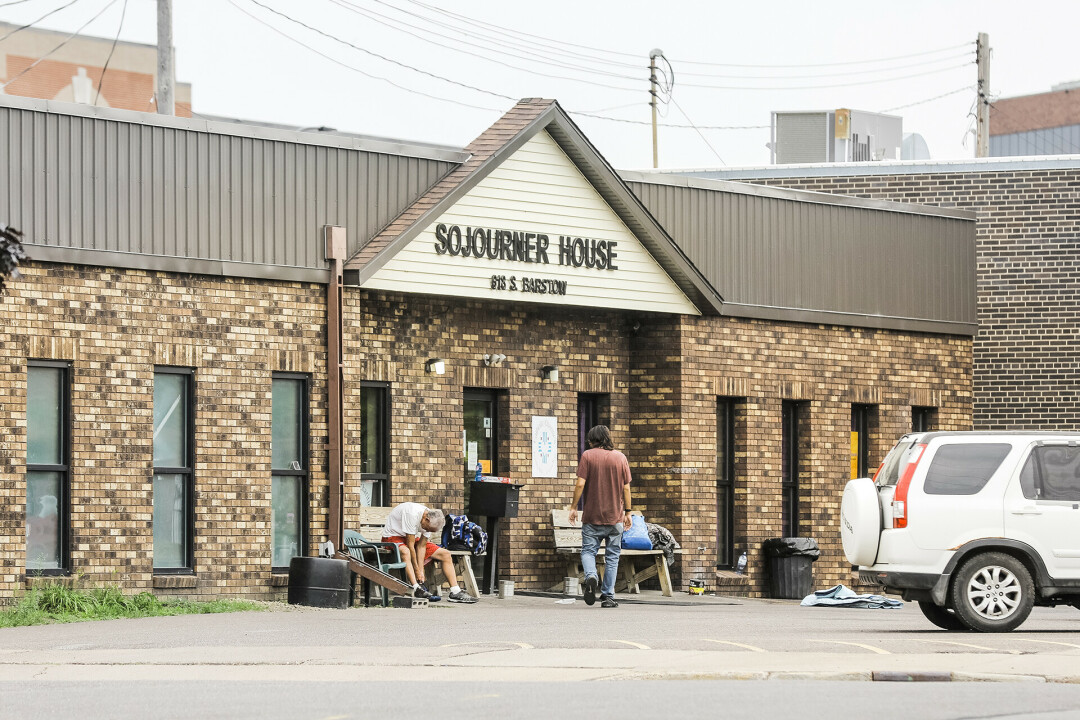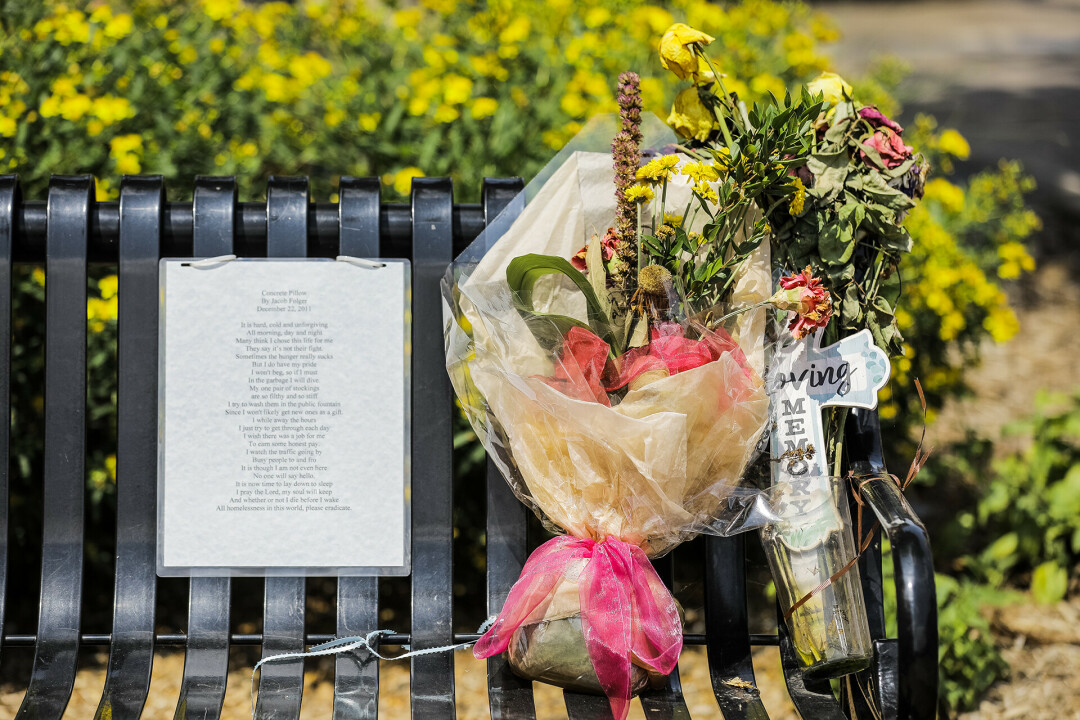Group Aims to Create Day Center for the Homeless
Day Resource Center Steering Committee wants to fill need for a safe place for unhoused residents
Keely Khoury, photos by Andrea Paulseth |

Chippewa Valley’s beautiful parks have another, more urgent purpose: They are the top source of clean drinking water and bathroom access for local residents experiencing homelessness.
Homelessness can oftentimes be ignored, or forgotten, when the people struggling with it are mostly out of sight. In June 2021, however, the death of Marilyn Roeber, a local unhoused woman, made the crisis of insecure – or nonexistent – housing a visible tragedy.
Around the same time, Libby Richter, as part of the Gaps & Needs Committee of the Dairyland Housing Coalition, surveyed people at four locations, along with conducting street outreach, about their experiences of homelessness. Finding food, water, and safe places to keep personal items are ongoing struggles for people without a permanent home. Yet, survey respondents indicated that a safe place to go during the day was needed even more.
The survey’s findings are stark. More than 63% of the people surveyed do not know where to get mental healthcare. And almost 75% do not know where to get help with alcohol or drug use. Unsurprising, yet no less heartbreaking, is the finding that more than 81% of the people who took part in the survey do not feel welcome in their community.
A group of local advocates and agencies that include representatives from the city and county governments; the three area health systems; people with lived experience; nonprofits; and private businesses are determined to change that. Following a series of community listening and engagement sessions held between July 2021 and January 2022 to discuss means of strengthening local services, they created the Chippewa Valley Day Resource Center (DRC) Steering Committee. The committee’s goal is to open a day resource center by November 2025 for vulnerable individuals to access personalized support focused on reducing housing insecurity, improving physical and mental health, and providing guidance for job seekers.

Susan Wolfgram, co-chair of the JONAH Affordable Housing Task Force and community organizer and facilitator for the Steering Committee, said, “We in this community have decided to stand together to make the right choice. There can be no fairness or justice in a society in which some live in homelessness or in the shadow of that risk, while others cannot even imagine it.”
Writer Julian Emerson, also a member of the Steering Committee, said, “While Chippewa Valley agencies that serve the needs of homeless people provide many services, there are many services that are missing, or are simply not enough. The agencies don't have enough funding to provide the complex, often very involved service level that is required to help homeless people get to a better place.”
Additionally, he points out that “another major hurdle is convincing people to accept the help being offered to them. Doing so takes winning the trust of homeless people, and that takes lots and lots of relationship building. And even then sometimes those efforts fail because of unaddressed mental health or substance abuse, or other issues.”
“Housing is a human right,” Wolfgram says, yet many residents wait two or more years to access affordable housing in the Chippewa Valley. “Yes, the answer to homelessness is a home; however, people need a safe and dignified space during the day with resources for them to ‘wait’ for that home,” she adds.
The next steps for the Steering Committee include deciding on a funding model, completing an analysis of the data gathered during site visits to facilities across Wisconsin, and outlining more detailed goals and deadlines.
Community members interested in volunteering with the project as it develops can email Susan Wolfgram at wolfgram.susanm@gmail.com. You can also learn more at nlihc.org/gap and jonahjustice.org.


















